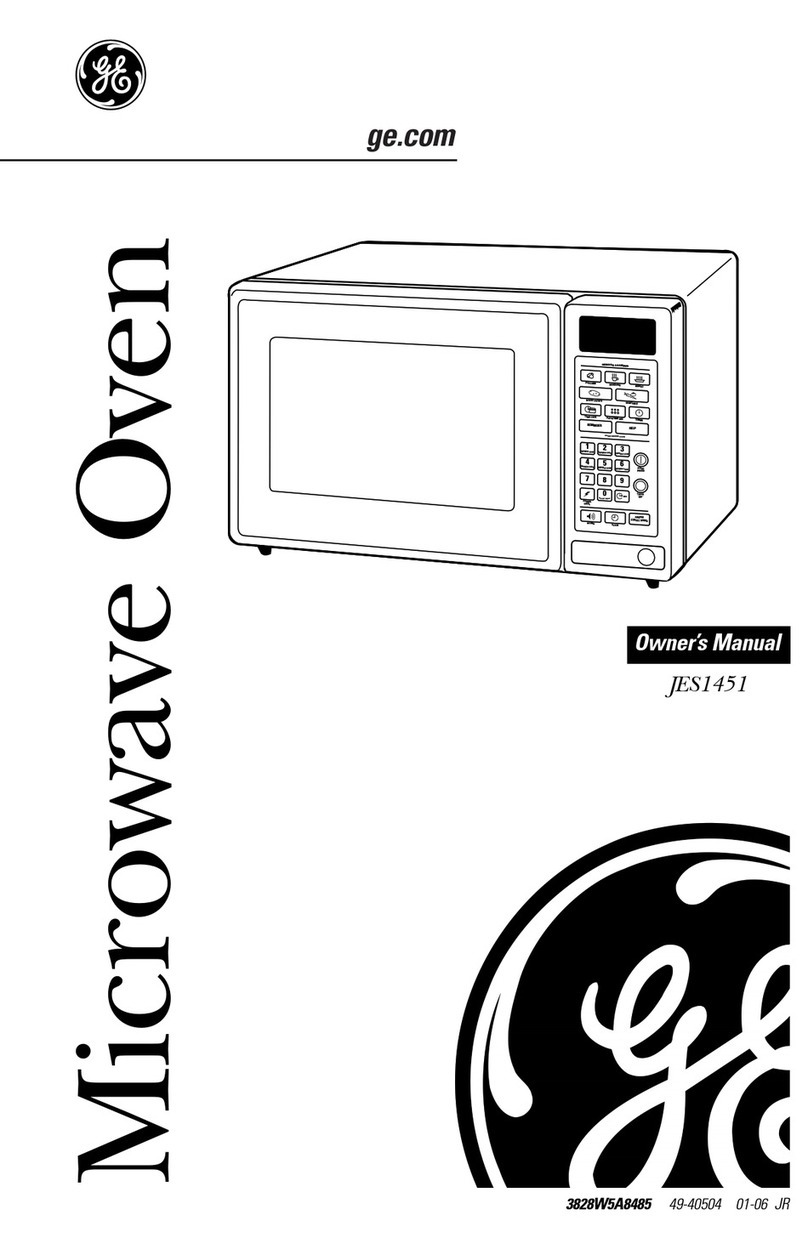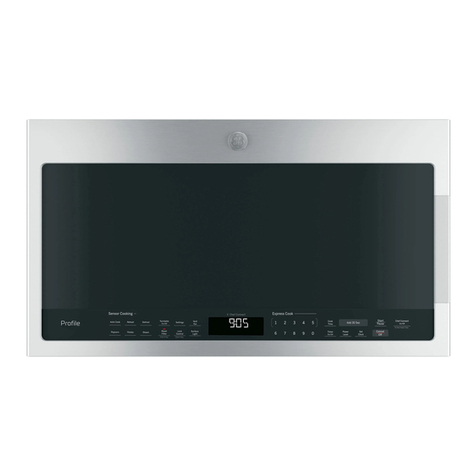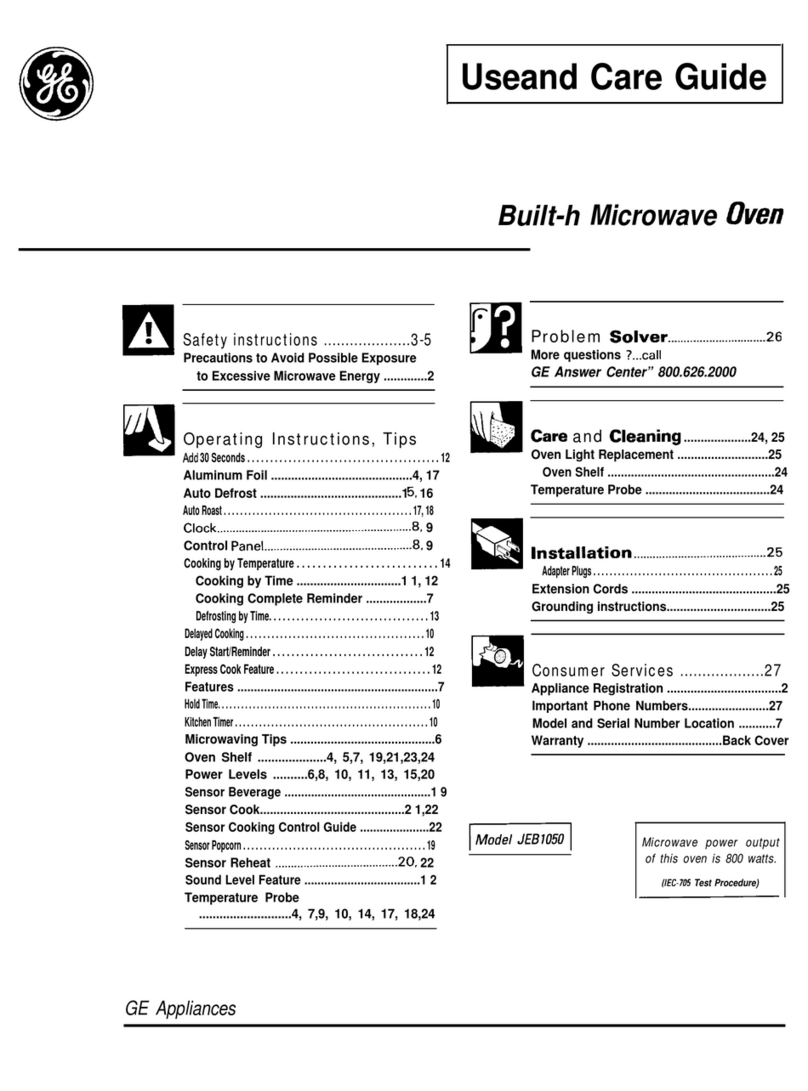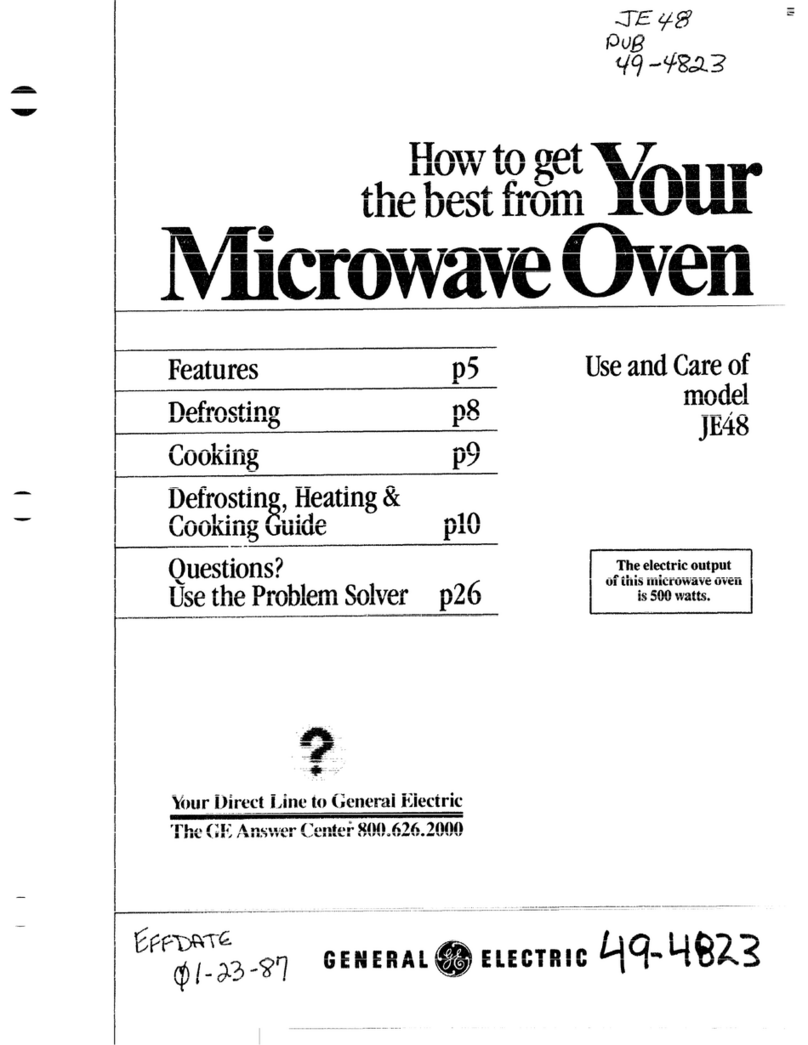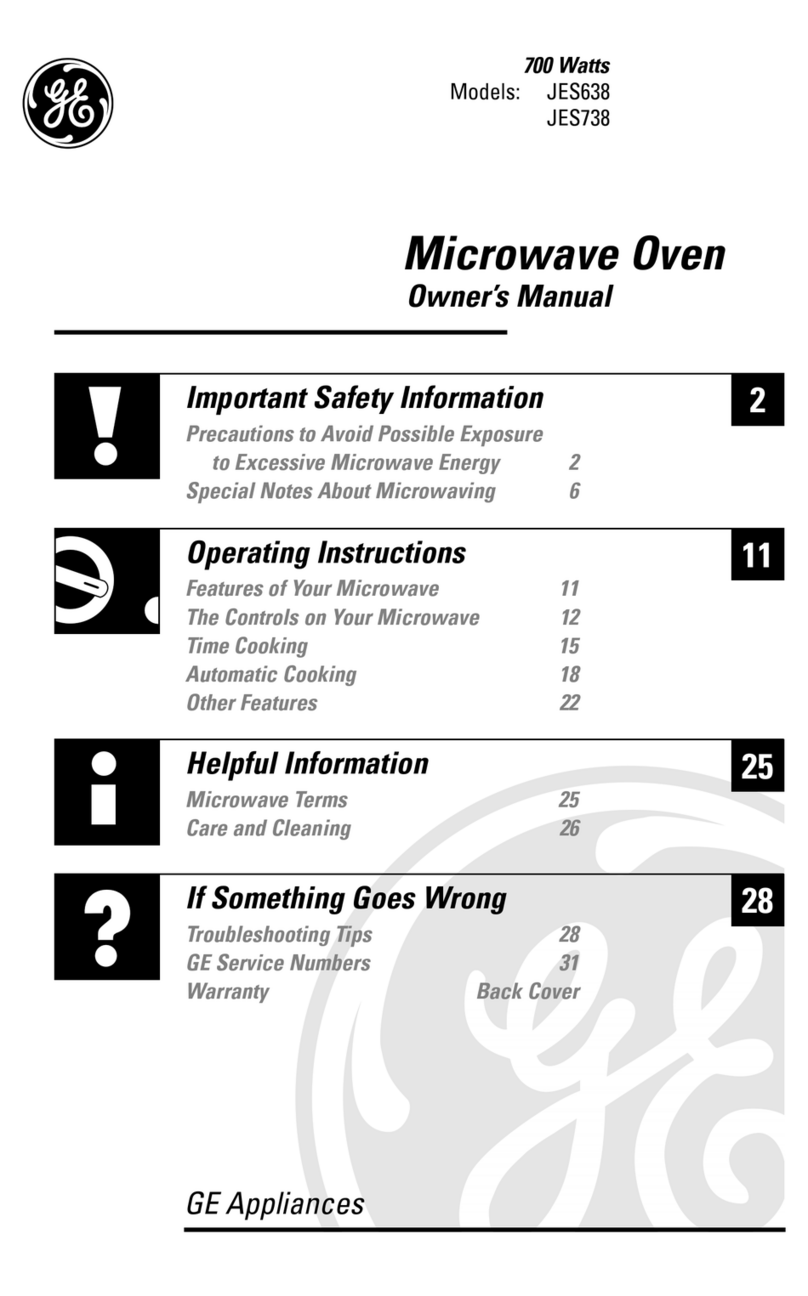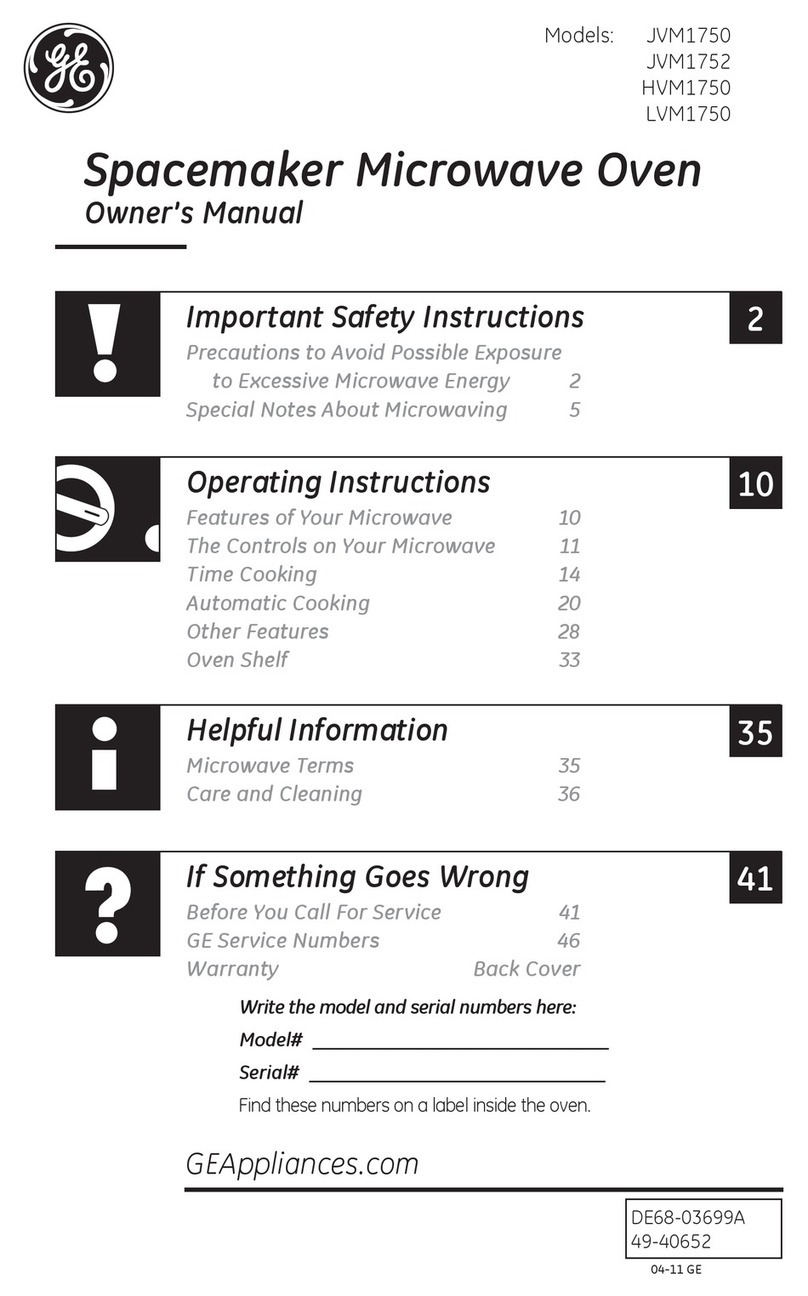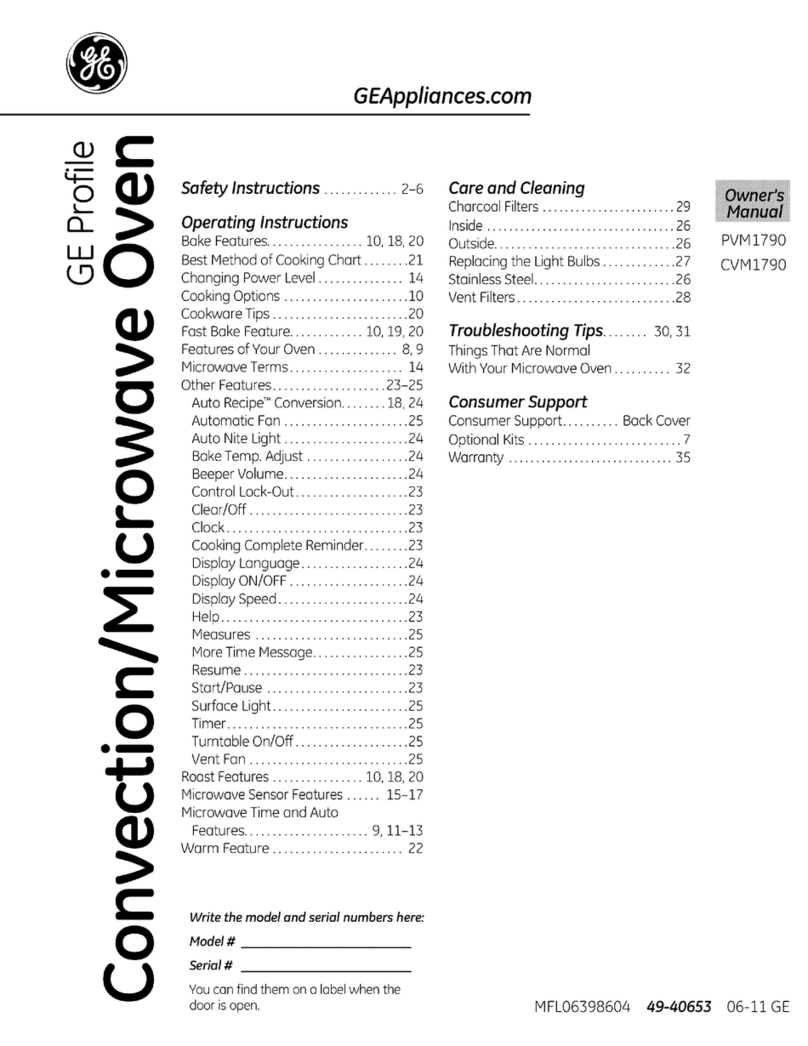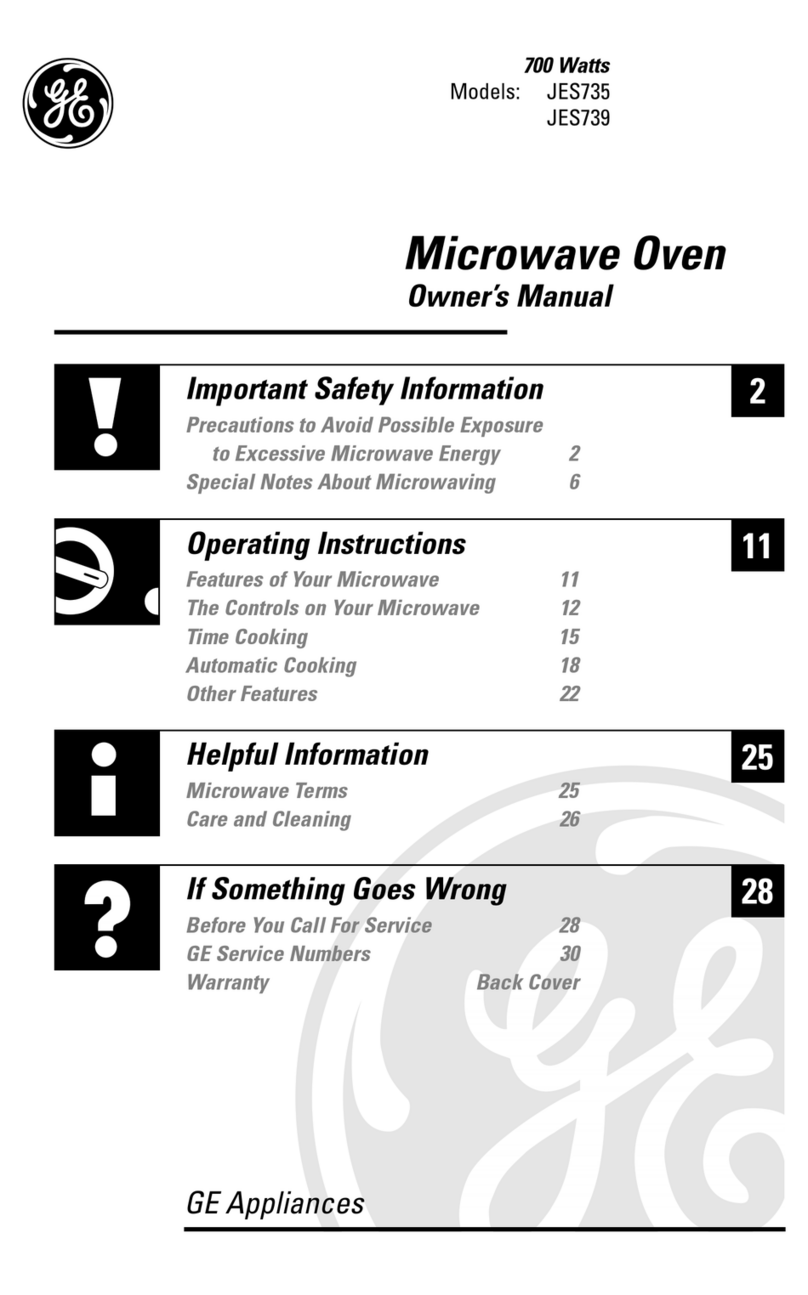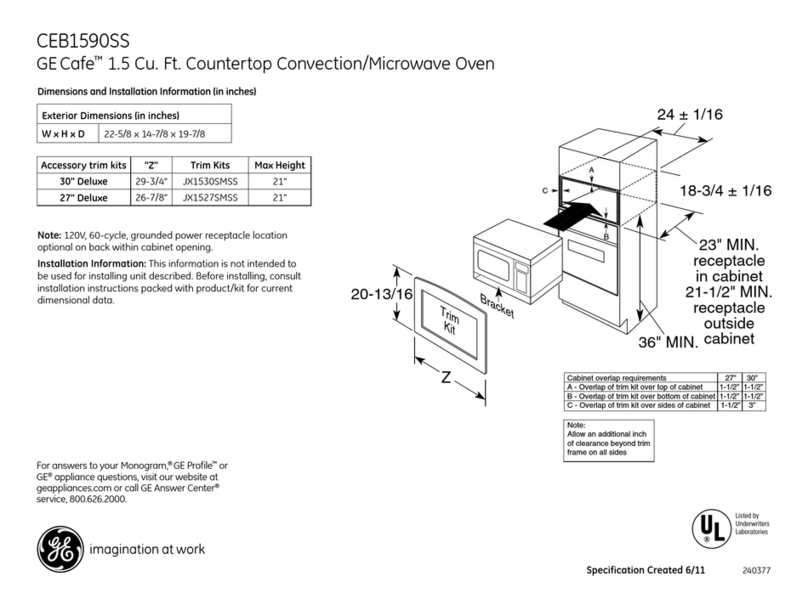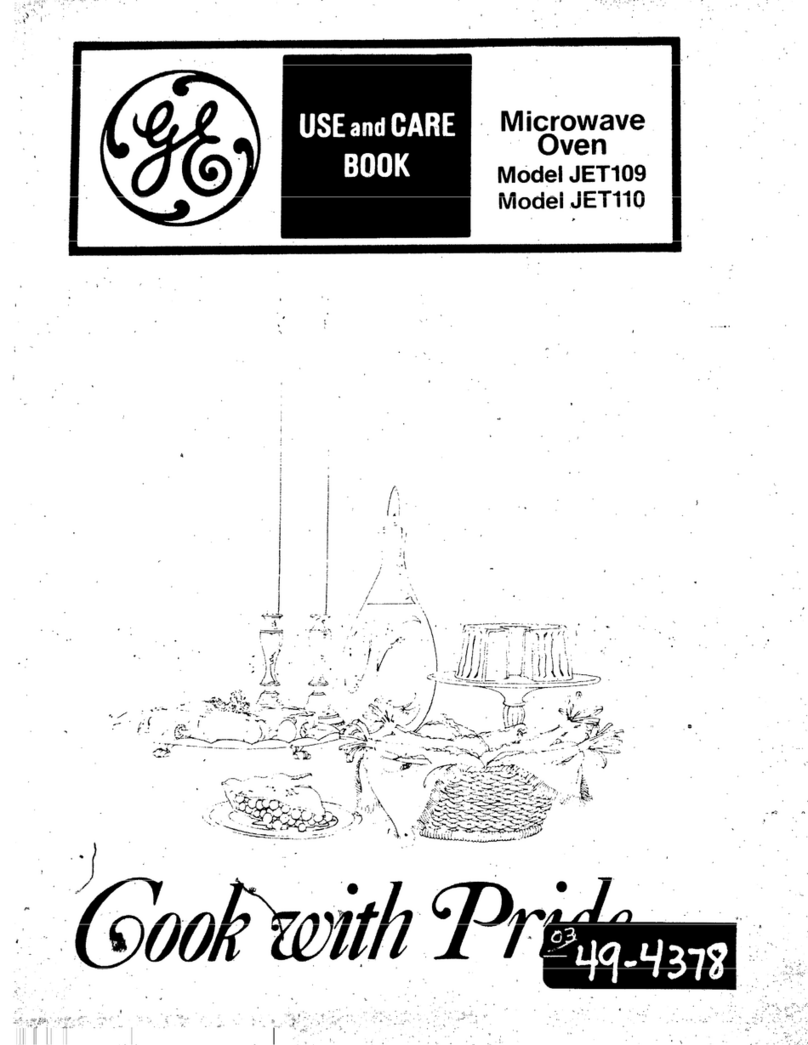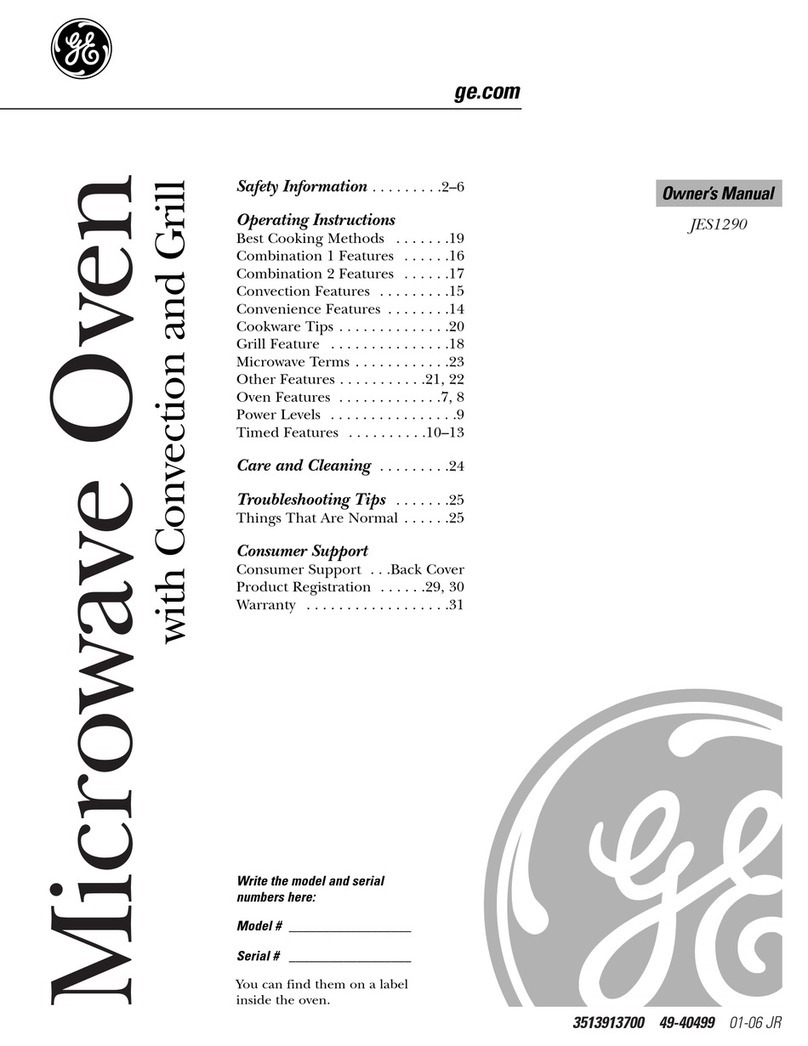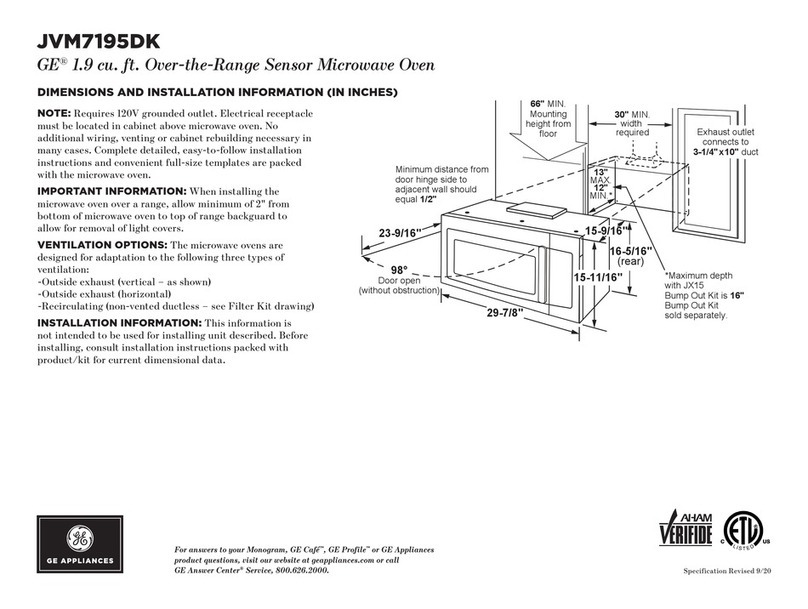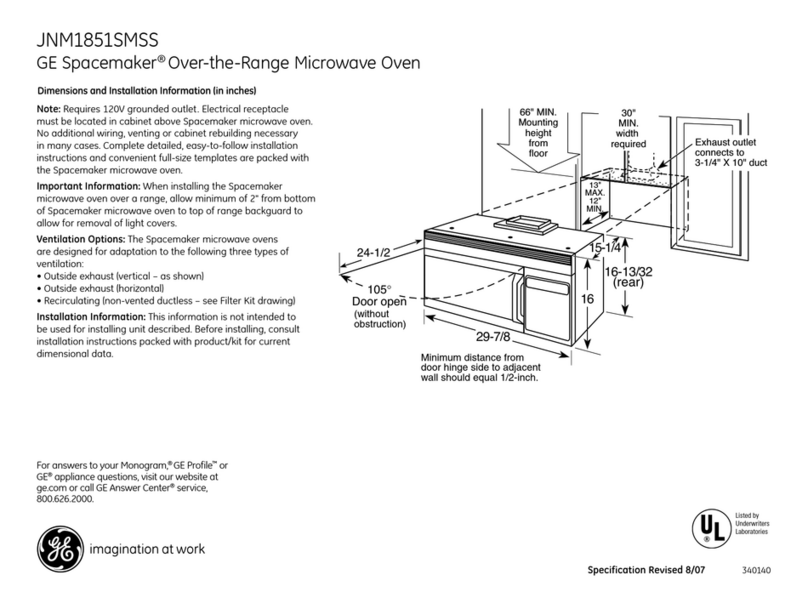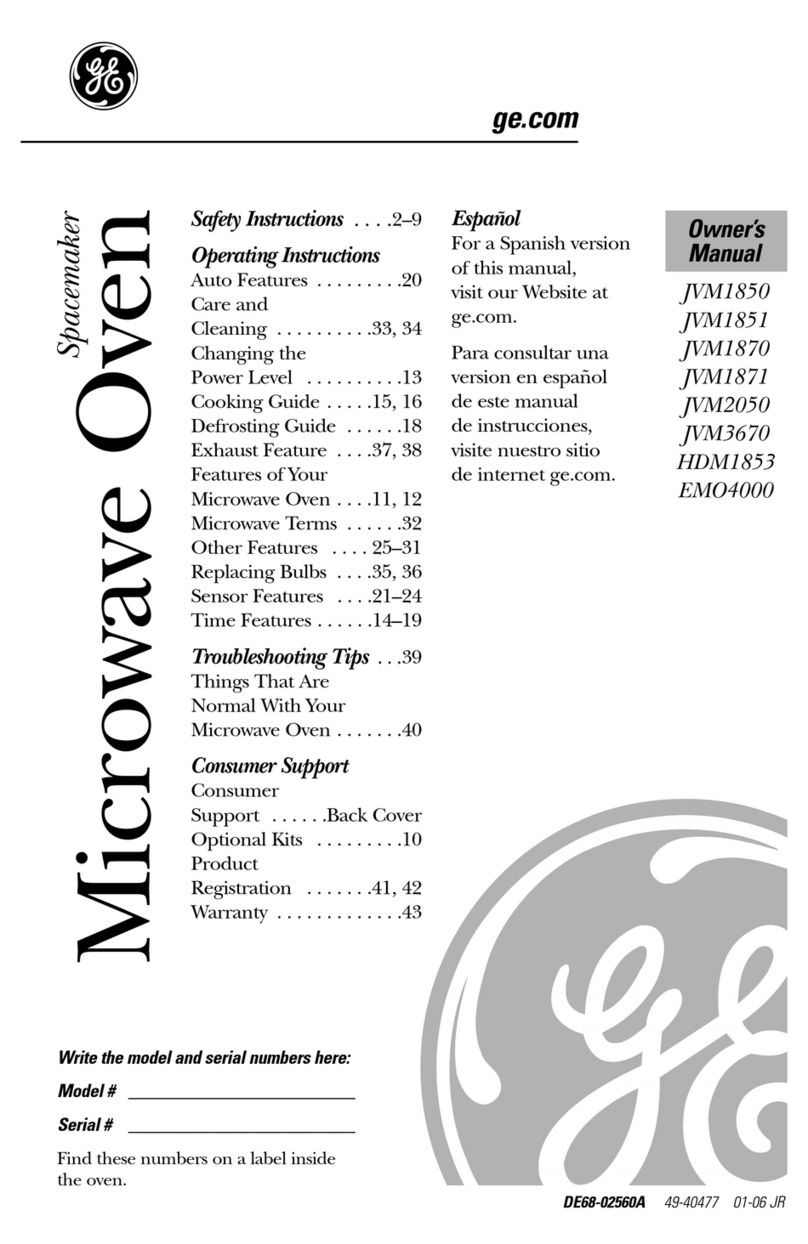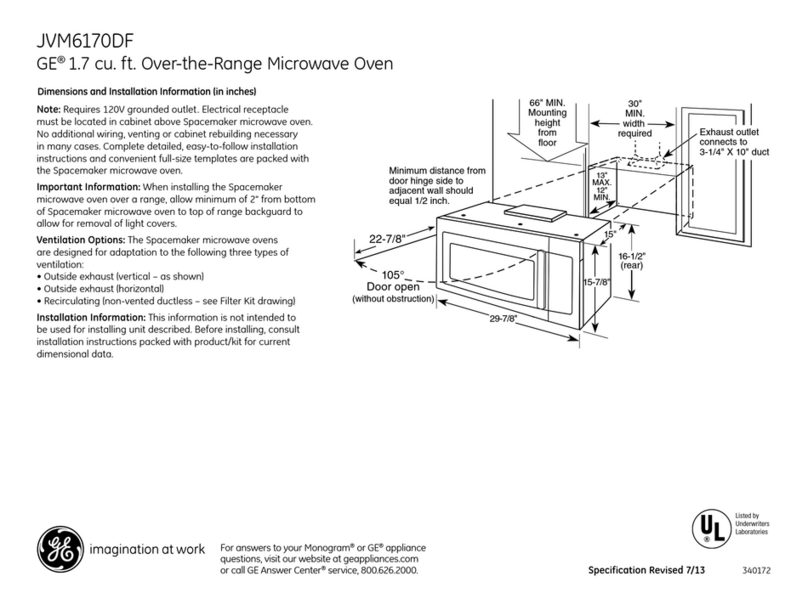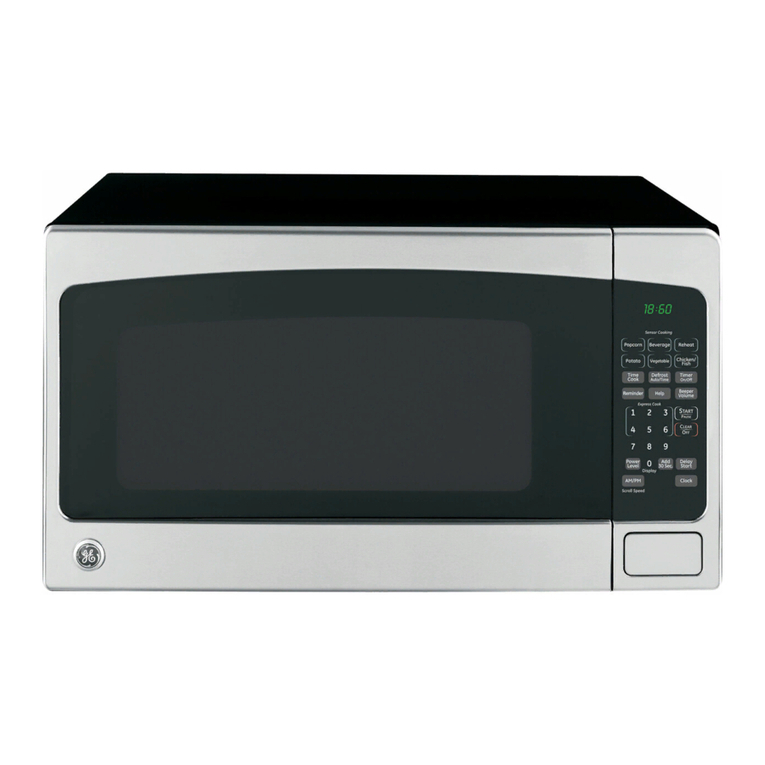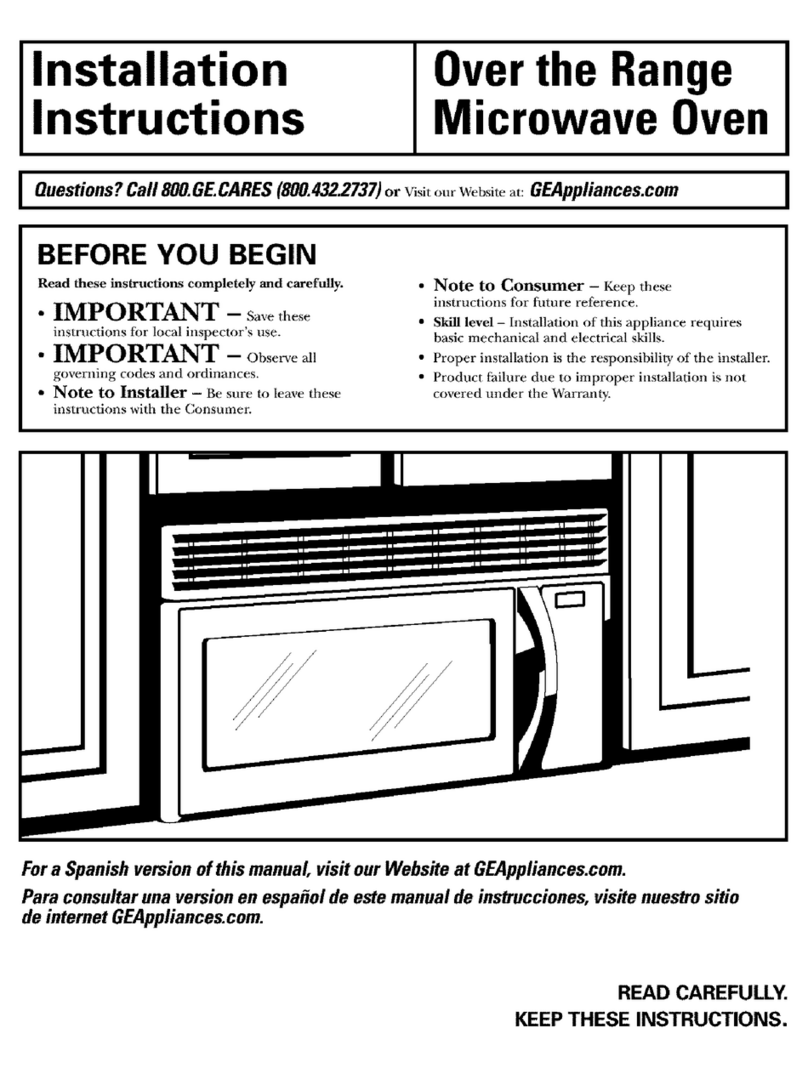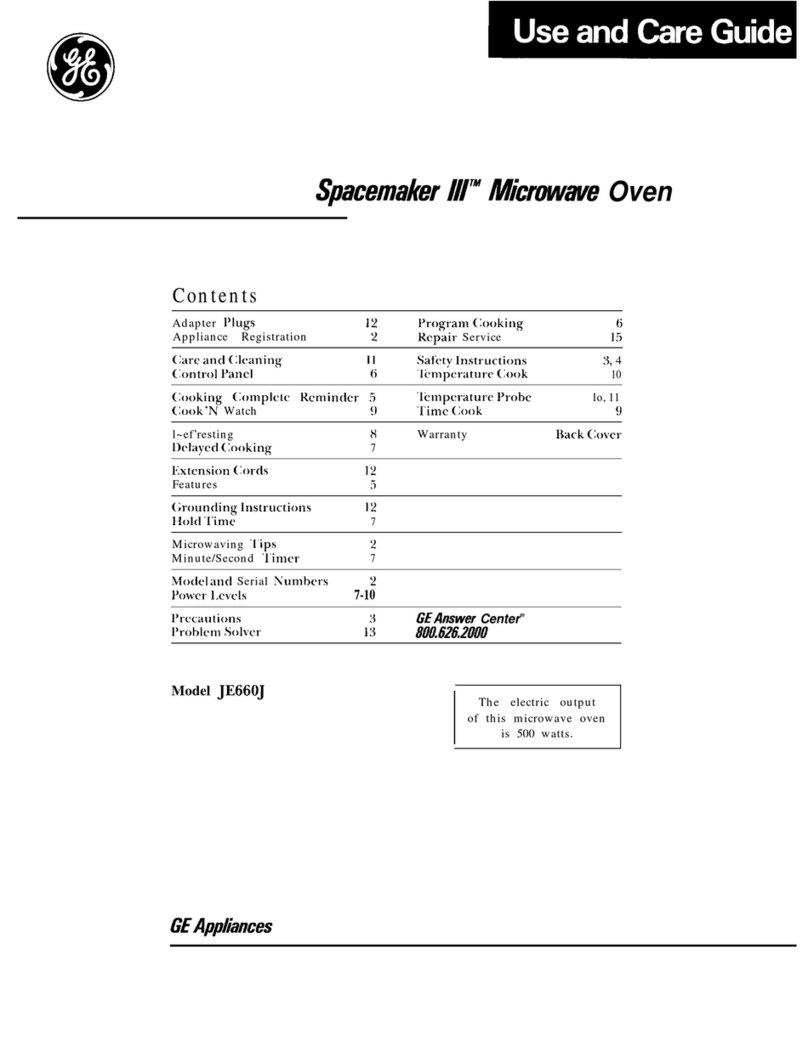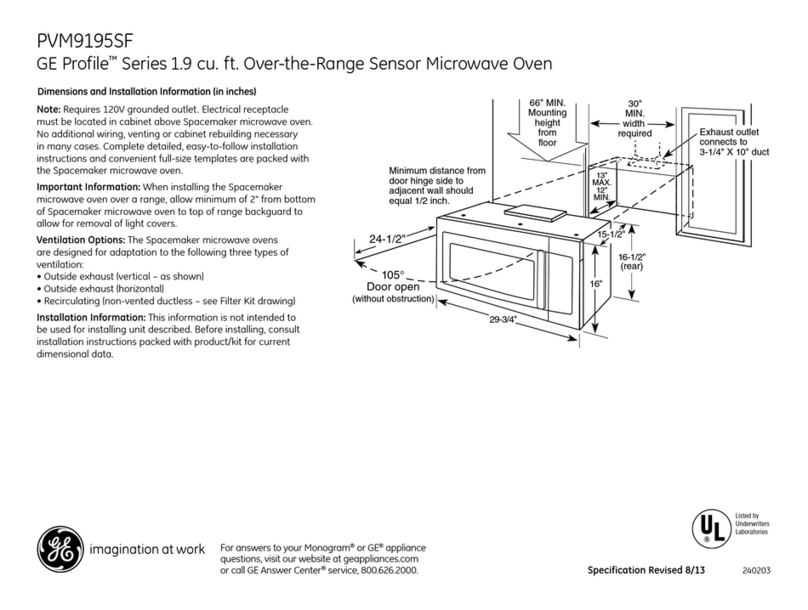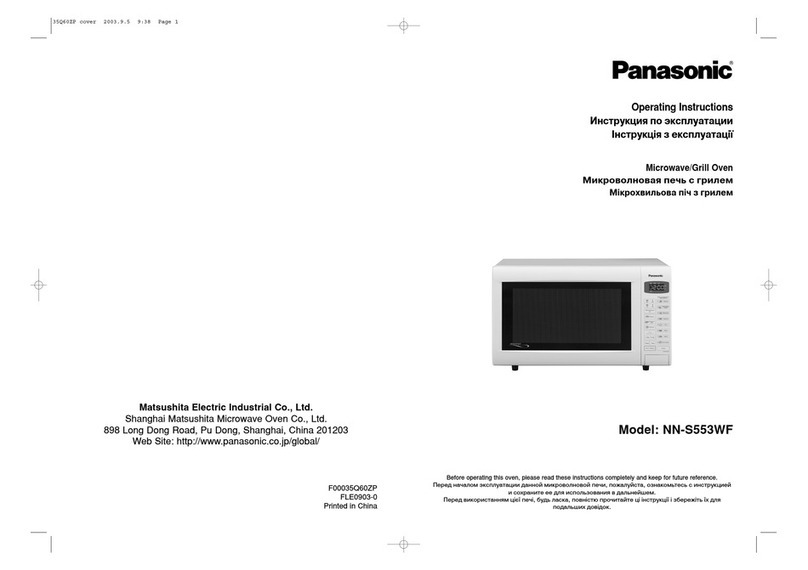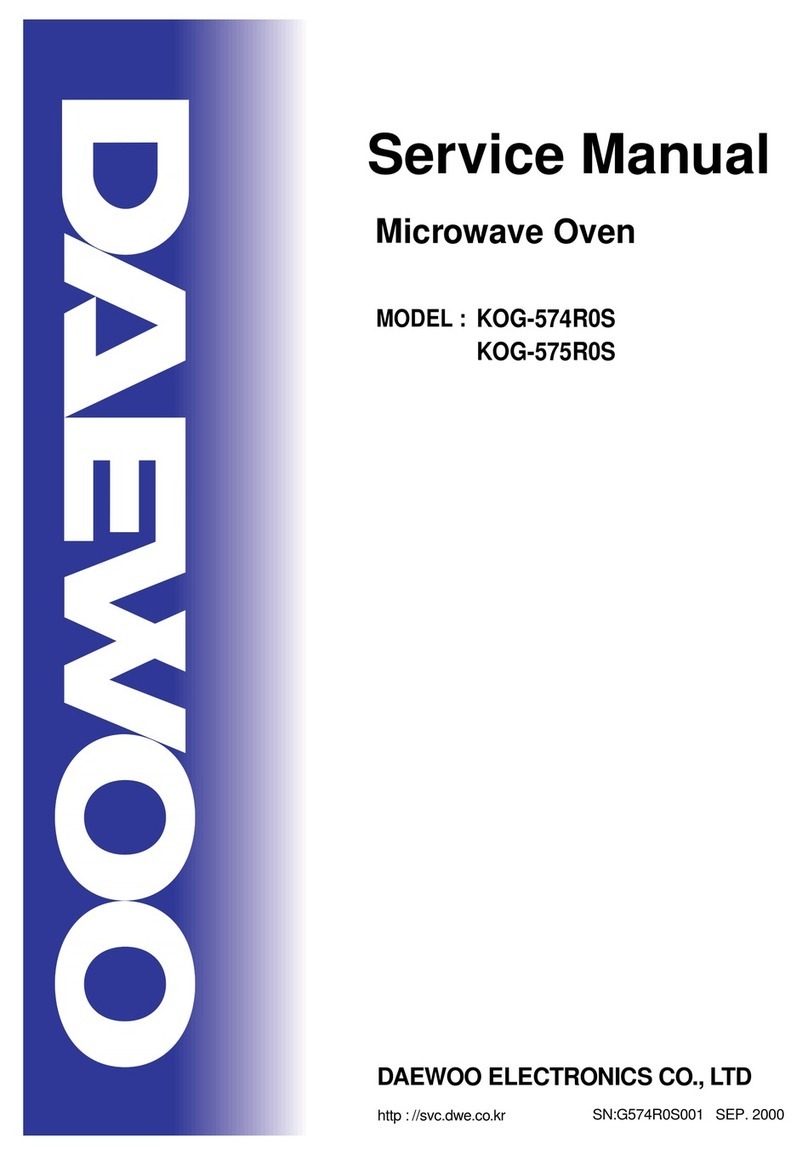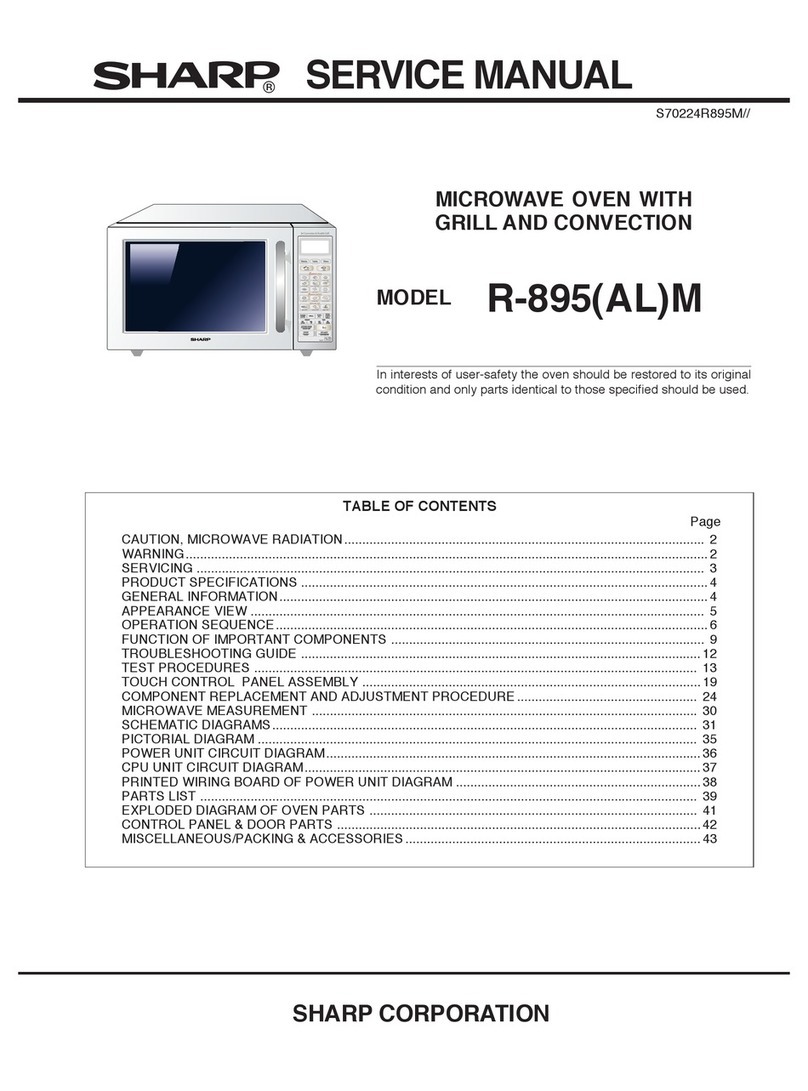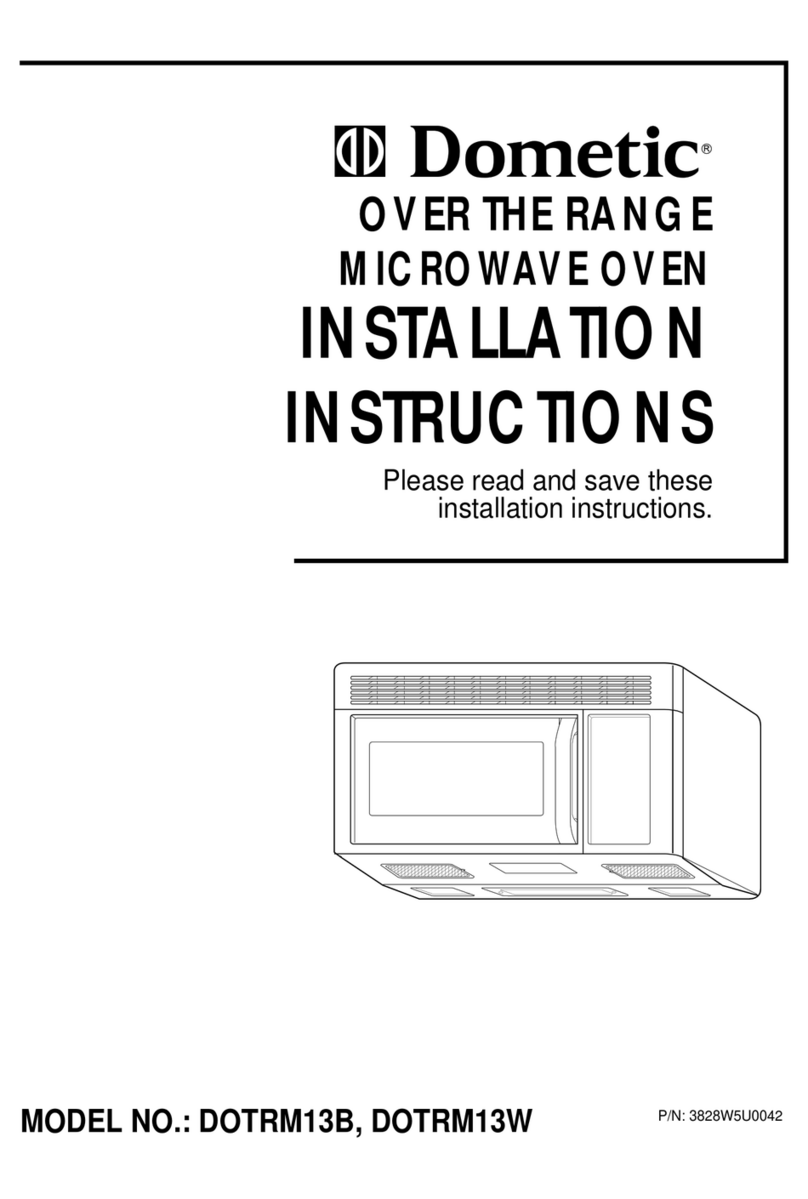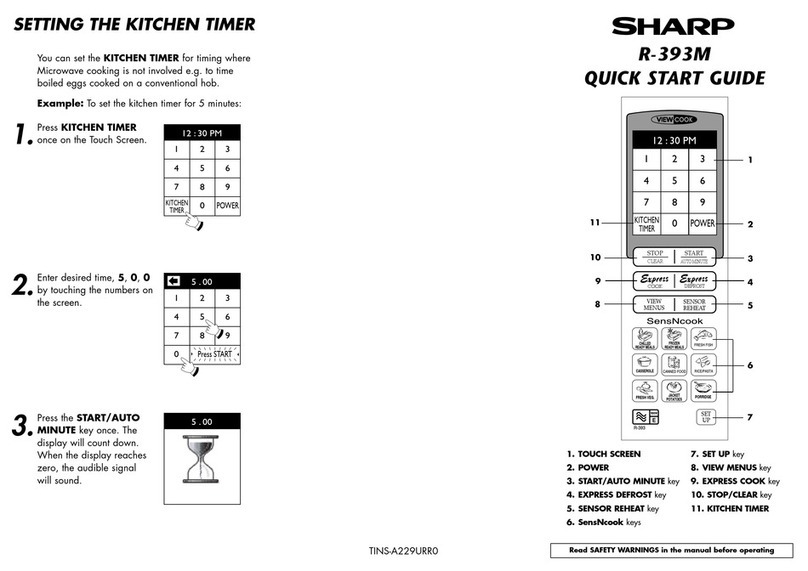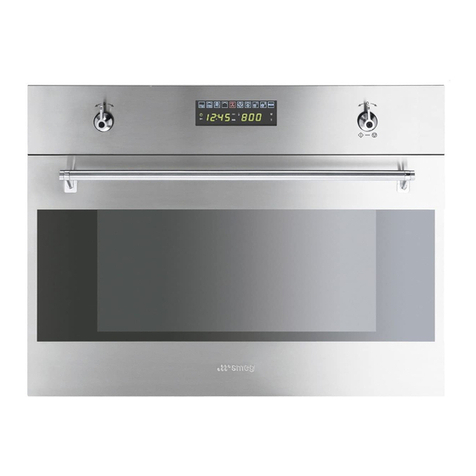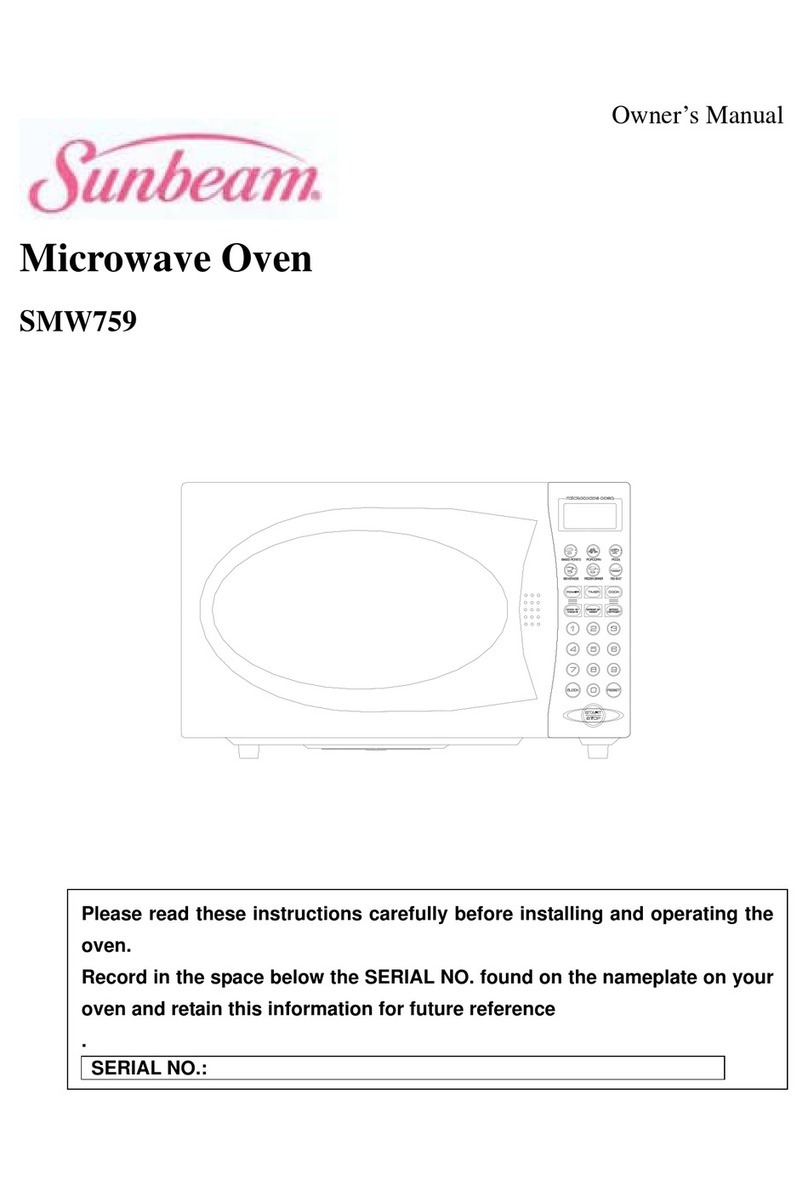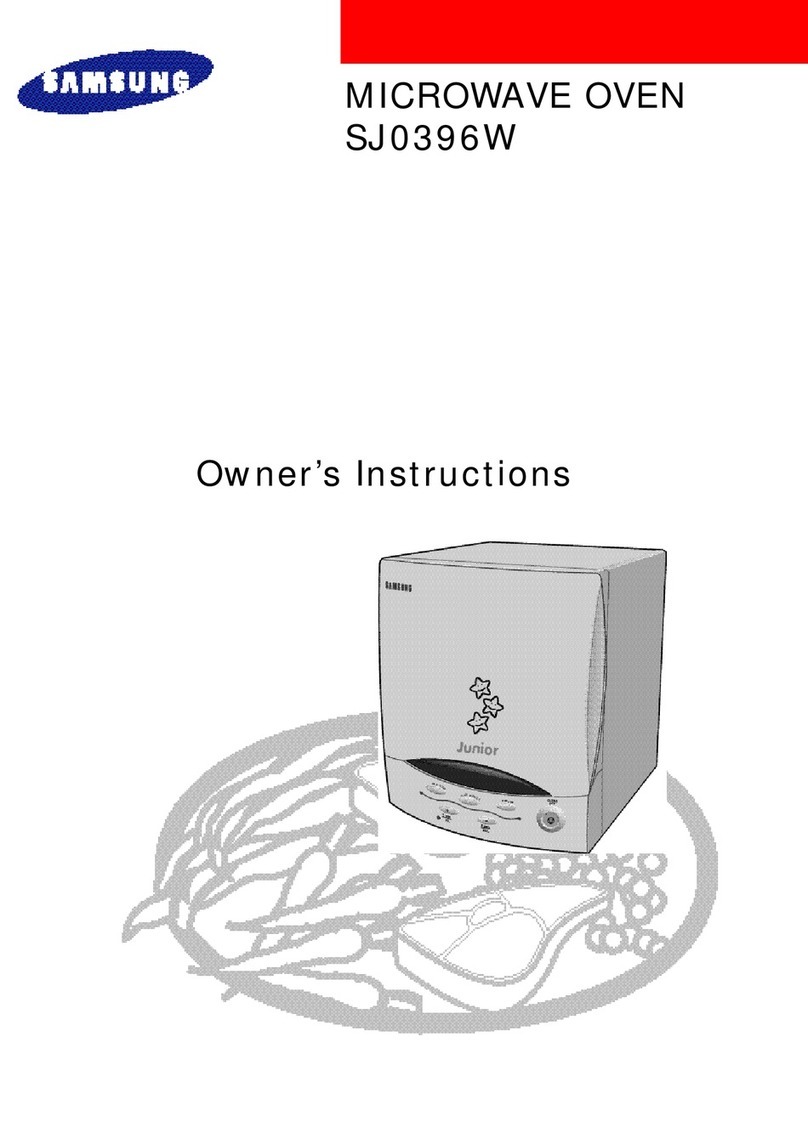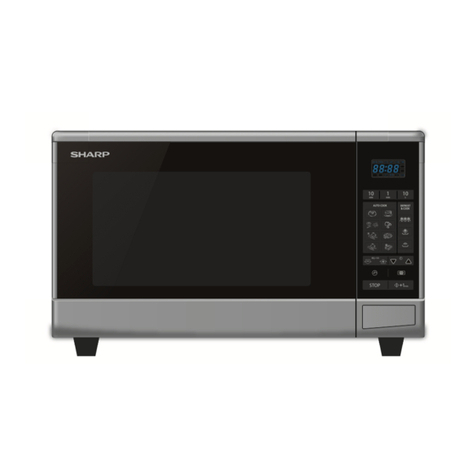
IMPORTANT SAFETY INSTRUCTIONS
(continued)
—Do not
use recycled paper
products.
Recycled paper towels,
napkins and wax paper can contain
meti
flecks, which may cause arcing
or ignite. Paper products containing
nylon or nylon filaments
should
be
avoided, as they may also ignite.
—Do not operate the oven while
empty to avoid damage to the
oven and the danger of fire. If by
accident the oven should run
empty a minute or two, no harm is
done. However, try to avoid
operating the oven empty at all
times—it saves energy and
prolongs the life of the oven.
—Do not
pop popcorn in your
microwave oven
unless in a special
microwave popcorn accessory or
unless you use popcorn labeled for
use in microwave ovens.
—Do not
overcook potatoes.
They could dehydrate and catch
fwe,
causing damage to your oven.
●
Do not use the oven for storage
PV~O
DO
not
leave paper
products, cooking
utensils or food
in the oven when not in use.
●
Hmaterhds inside oven
shodd
ignite,
keep oven door closed, turn
oven off, and disconnect power
cord, or shut off power at fuse or
circuit breaker panel.
●
Some
products
such as whole
eggs and sealed containers-for
example,
closed
glass jars-will
explode
and
should not be heated in
this oven. Such use of the microwave
oven could result in injury.
● Avoid heating baby food in
glass jars, even without their lids;
especially meat and egg mixtures.
.
Don’t defrost
fromn
beverages
in
narrow-necked bottles (especially
mbonatti
kverages).
Even if the
container is opened, pressure can
build up. This can cause the
container to burst, possibly
resulting in injury.
● Use metal only as directed in
this
book.
TV dinners maybe
microwaved in foil trays less than
3/4” high; remove top foil cover
and return tray to box. When using
metal in the microwave oven,
keep metal at least 1 inch away
from sides of oven.
● Cookware may become hot
because of heat transferred from
the heated food. Pot holders may
be needed to
hande
the cookware.
● Sometimes, the turntable can
become too hot to touch. Be
careful handling the turntable
during and after cooking.
● Foods cooked in liquids (such as
pasta) may tend to boil over more
rapidly than foods containing less
moisture. Should this occur, refer
to page 23 for instructions on how
to clean the inside of the oven.
● Thermometer—Do not use a
thermometer in food you are
microwaving
unless
the thermometer
is designed or recommended for
use in the microwave oven.
● Plastic
cookwar+Plastic
cookware designed for
microwave cooking is very
useful, but should be used
carefully. Even microwave-safe
plastic may not be as tolerant
of
overcooking conditions as are
glass or ceramic materials and
may soften or char if subjected to
short periods of overcooking. In
longer exposures to overcooking,
the food and cookware could
ignite, For these reasons: 1) Use
microwave-safe plastics only and
use them in strict compliance
with the cookware manufacturer’s
recommendations. 2) Do not
subject empty cookware to
microwaving. 3) Do not permit
children to use plastic cookware
without complete supervision.
●
Men
cooking pork,
follow the
directions exactly and always
cook the meat to an internal
temperature of at least
170°F.
This assures that in the remote
possibility that trichina may be
present in the meat, it will be
killed and meat will be safe to eat.
●
Do
not boil eggs in a microwave
oven.
Pressure will build up inside
the egg yolk and will cause it to
burst, possibly resulting in injury.
●
Foods
with unbroken outer
“skin”
such as potatoes, sausages,
tomatoes, apples, chicken livers
and other giblets, and egg yolks
(see previous caution) should be
pierced to allow steam to escape
during cooking.
●
Not
dl
plastic wrap is suitable
for use in microwave ovens.
Check the package for proper use.
. 66
Boi1ab~e”
cooking pouches
and tightly closed plastic bags
should be slit, pierced or vented as
directed by the manufacturer. If
they are not, plastic could burst
during or immediately after
cooking, possibly resulting in
injury. Also, plastic storage
containers should be at least
partially uncovered because they
form a tight seal. When cooking
with containers tightly covered
with plastic wrap, remove
covering carefully and direct
steam away from hands and face.
●
Hot
foods and steam can cause
burns.
Be careful when opening
any containers of hot food,
including popcorn bags, cooking
pouches and boxes. To prevent
possible injury, direct steam away
from hands and face.
●
Spontaneous boiling—Under
certain special circumstances,
liquids may start to boil during or
shortly after removal from the
microwave oven. To prevent burns
from splashing liquid, stir the
liquid briefly before removing the
container from the microwave oven.
SAVE THESE
INSTRUCTIONS

